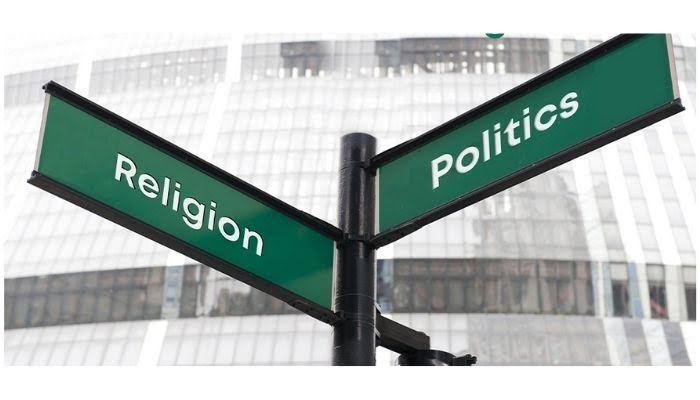Politics
The Intricate Relationship Between Religion And Politics: Exploring Their Interplay And Impact

The relationship between religion and politics is a complex and fascinating subject that has influenced societies throughout history. In this article, we will delve into the intricate interplay between religion and politics, exploring how they shape and impact each other. By understanding this relationship, we can gain insights into the dynamics that shape our world today.
Religion’s Influence on Politics
Religion holds a profound influence on politics by asserting claims on people’s allegiance and shaping their moral values. Here are some key aspects of how religion influences politics:
● Moral Guidance and Values: Religious beliefs provide a moral compass for individuals and communities, often guiding their political stances and decisions. Concepts of justice, human rights, and ethical principles derive from religious teachings and shape political systems.
● Historical Influence: Throughout history, religious beliefs and institutions have played significant roles in shaping political systems and policies. Examples such as the influence of Christianity on the development of Western democracies or the role of Islam in shaping the legal systems of certain nations highlight the historical impact of religion on politics.
● Religious Movements and Leaders: Religious movements and leaders have often played instrumental roles in shaping political landscapes. Figures like Martin Luther King Jr., who led the civil rights movement in the United States, or Mahatma Gandhi, who advocated for India’s independence through nonviolent means, demonstrate how religious beliefs can inspire and mobilize political change.

Religion and politics
Political Impact on Religion
Just as religion influences politics, political systems, and decisions can have a profound impact on religious practices and beliefs. Consider the following aspects of politics’ impact on religion:
● Shaping Religious Practices: Political systems can shape religious practices by either promoting or restricting them. For instance, governments may grant religious freedom and protect the rights of believers, or they may impose restrictions, regulate religious institutions, or favor certain religious groups over others.
● Religious Freedom and Control: In some instances, politics has sought to control religious institutions or limit religious freedom. Governments may interfere in the internal affairs of religious communities, suppress religious practices, or promote state-sponsored religions. These actions can have far-reaching consequences for religious diversity and individual liberties.
● Engagement for Political Gain: Political leaders often engage with religious communities to gain support or shape public opinion. This engagement can be both genuine and strategic, as politicians recognize the influence of religion on public sentiment and seek to align themselves with religious values and interests.
Interactions and Tensions
The relationship between religion and politics is not always harmonious and can lead to conflicts and tensions. Consider the following interactions and challenges that arise from their intersection:
● Conflicts and Divisions: Throughout history, religious divisions have fueled political conflicts and tensions. The Crusades, the Northern Ireland conflict, and the Israeli-Palestinian conflict all illustrate how religious differences can be catalysts for political instability and violence.
● Political Exploitation of Religion: The intersection of religion and politics can also give rise to the manipulation and exploitation of religious sentiments for political gain. Politicians may use religious rhetoric to polarize societies, mobilize supporters, or advance specific political agendas, potentially exacerbating social divisions.
● Religious and Political Ideologies: When religious and political ideologies intertwine, challenges can arise. Conflicting views on issues such as gender equality, reproductive rights, or LGBTQ+ rights can lead to clashes between religious beliefs and political values, requiring careful navigation to ensure inclusivity and respect for individual freedoms.
Benefits and Challenges of the Relationship
The relationship between religion and politics brings both benefits and challenges to society. Let’s explore these aspects:
● Moral Guidance and Social Cohesion: Religion can provide moral guidance and serve as a source of ethical principles that contribute to social cohesion. Shared religious values can unite communities, foster a sense of belonging, and inspire individuals to contribute to the common good.
● Exclusivity and Discrimination: However, intertwining religion and politics can also lead to exclusivity and discrimination. When a particular religious belief is given undue preference or when religious teachings are used to justify discrimination against certain groups, it undermines the principles of equality and inclusivity.
Conclusion
The relationship between religion and politics is a multifaceted and intricate interplay that shapes our societies in profound ways. By exploring the influences and consequences of this relationship, we gain insights into the complexities of our world. It is crucial to foster open dialogue and understanding, acknowledging the potential benefits and challenges that arise from the intersection of religion and politics. By doing so, we can strive for a more inclusive and harmonious society.
FAQs
Q: How does religion influence political decision-making? A: Religion influences political decision-making by shaping the moral values and ethical principles that guide individuals and communities. Religious beliefs often inform political stances on issues such as social justice, human rights, and the role of government in society.
Q: Can politics restrict religious freedom? A: Yes, politics can restrict religious freedom. Governments may impose regulations, limit religious practices, or favor certain religious groups over others. However, it is important to uphold the principles of religious freedom and protect individuals’ rights to practice their beliefs without undue interference.
Q: Are there benefits to a positive relationship between religion and politics? A: Yes, a positive relationship between religion and politics can have several benefits. Religion can provide moral guidance, promote social cohesion, and inspire individuals to contribute to the common good. It can also foster a sense of community and belonging, creating a framework for ethical decision-making in political systems.
Q: How can conflicts arising from the intersection of religion and politics be addressed? A: Addressing conflicts arising from the intersection of religion and politics requires open dialogue, respect for diverse perspectives, and a commitment to inclusive decision-making. Encouraging mutual understanding, promoting religious freedom, and upholding principles of equality and human rights are essential in navigating these challenges.
Click to watch our video of the week:
Advertise or Publish a Story on EkoHot Blog:
Kindly contact us at [email protected]. Breaking stories should be sent to the above email and substantiated with pictorial evidence.
Citizen journalists will receive a token as data incentive.
Call or Whatsapp: 0803 561 7233, 0703 414 5611







